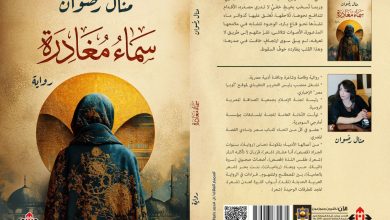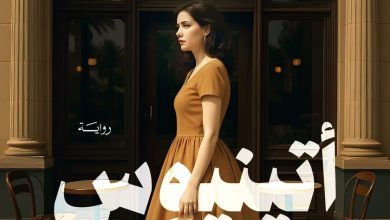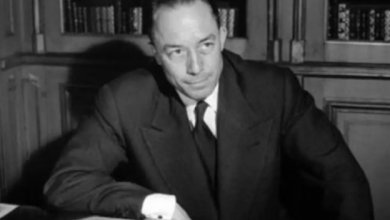The Nile River: A Literary Lifeline Through Time
Live Encounters Arab Poetry & Writing – April 2025 Edition
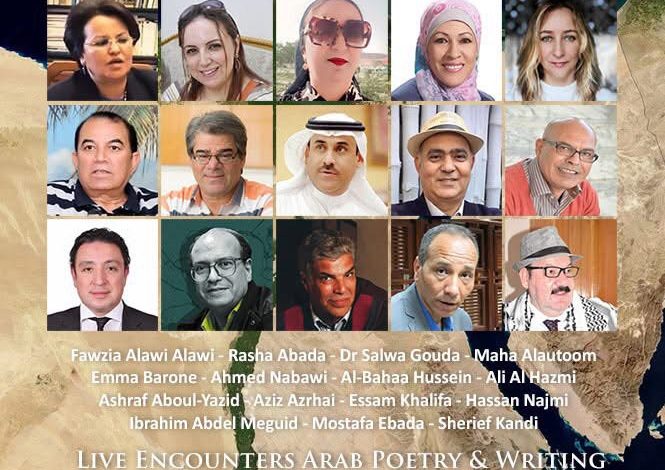
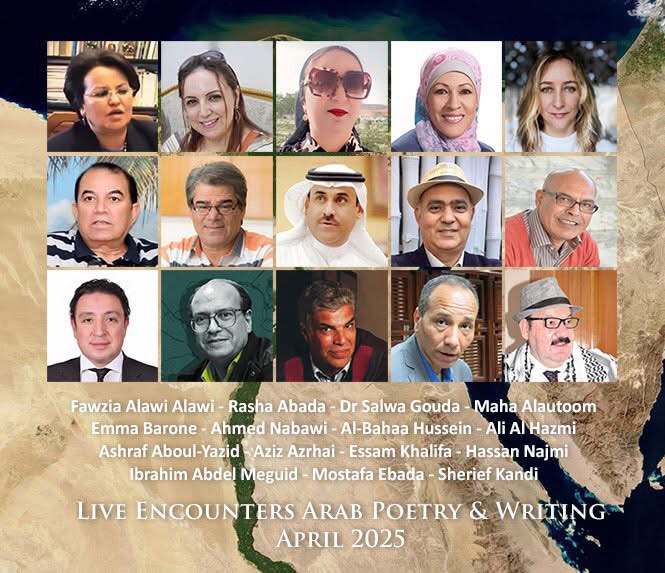 The April 2025 edition of Live Encounters Arab Poetry & Writing features a remarkable gathering of renowned Arab poets, writers, and intellectuals from across the Arab world and beyond. This issue brings together diverse voices, each contributing to the rich literary and cultural discourse that defines contemporary Arab writing.
The April 2025 edition of Live Encounters Arab Poetry & Writing features a remarkable gathering of renowned Arab poets, writers, and intellectuals from across the Arab world and beyond. This issue brings together diverse voices, each contributing to the rich literary and cultural discourse that defines contemporary Arab writing.
Among the distinguished contributors are Fawzia Alawi Alawi, Rasha Abada, Dr. Salwa Gouda, Maha Alautoom, and Emma Barone, whose literary and poetic works reflect deep artistic sensibilities. The edition also showcases the works of Ahmed Nabawi, Al-Bahaa Hussein, and Ali Al Hazmi, alongside established literary figures like Ashraf Aboul-Yazid, Aziz Azrhari, Essam Khalifa, Hassan Najmi, and Ibrahim Abdel Meguid. Additionally, Mostafa Ebada and Sherief Kandi enrich the edition with their contributions.
With such an exceptional lineup of authors, this issue promises to offer readers a unique blend of poetry, prose, and critical thought, celebrating the vibrant and evolving landscape of Arab literature in 2025.
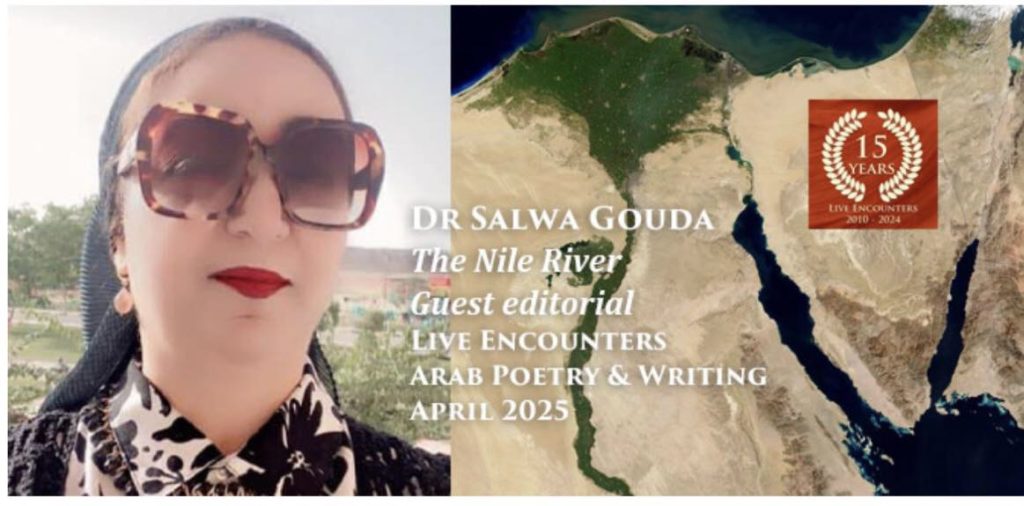
The introduction of Dr. Salwa Gouda’s article, who chose and translated the selections entitled “The Nile River: A Literary Lifeline Through Time,” establishes a profound connection between the Nile River and its literary, historical, and cultural significance. The author eloquently describes the Nile as more than just a geographical feature—it is a symbol of life, endurance, and civilization. By weaving personal reflections with historical insights, she highlights how the river has inspired poets, writers, and civilizations for centuries.
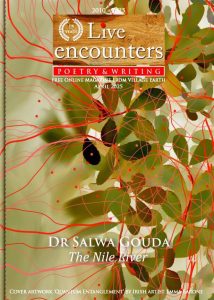
Her writing is engaging and poetic, reinforcing the Nile’s role in shaping Egyptian identity, from ancient mythology to modern nationalism. The introduction effectively sets the stage for a deep exploration of the river’s literary legacy, making it clear that the article will traverse multiple eras and perspectives. Gouda’s evocative language, combined with historical references, immediately draws the reader into the timeless significance of the Nile as a spiritual, cultural, and political force.
Overall, the introduction is compelling and well-crafted, seamlessly blending personal, historical, and literary narratives. It promises an insightful discussion on how the Nile continues to shape artistic expression and national consciousness.

